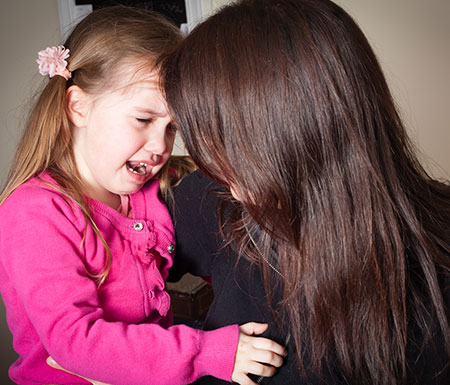How to Calm an Angry Child
We’ve all been there – it’s so very hard to keep your cool when you’re dealing with a screaming, angry child who won’t listen to reason or try to explain to you what exactly it is that he or she wants. Sometimes deep breaths don’t work – and you’re tempted to give your child a good smacking, despite knowing it often only makes things worse.
What else can you do, you ask? Skoolopedia’s list of tried and tested ways to calm your child down – curated from experienced mothers – is here to help.
The Power of “I Love You”

Never underestimate the power of these three words to make your child feel secure, wanted and loved – it goes a long way in calming them down, especially when they are acting out because of fear or confusion. Remind them that no matter how mean they are, or what they say, you will love them still – and watch that anger just drain away.
Acknowledge Their Anger

A lot of times, toddlers lose their temper because they feel like they have no control over their situations and that their feelings are unimportant. Let your child know that you can see that they are angry and acknowledge that they are angry so they learn to understand – and control – their emotions better along with the physical or emotional signs that come with it. Let them know it is okay to be angry and guide them gently in verbally expressing the way they feel to break the tension.
Keep Calm and Carry On
Responding back in anger at a furious child can only be a slippery slope down to tantrum mayhem. Children often scream or lash out because they want to provoke a reaction from their parents – so respond by staying calm and cool, and tell them firmly but gently exactly how you are reacting to their outbursts.
“I’m going to sit here in the living room until you’re ready to talk to me without shouting” is a good example of how to deal with a crying, screaming toddler.
Help them Express Themselves
Offer help – some children do not respond well to hugs or physical touch when they are feeling angry or extra sensitive. So offer help but try not to force it on them, by giving them a choice you’re telling them you respect their emotions but are not leaving them to deal with their feelings alone.
Be Firm
 It’s good to be understanding and give your child space to work out his or her anger, but remember, as the parent, you’re still the one in charge and your child needs to know that tantrums are not the solution to getting everything he wants.
It’s good to be understanding and give your child space to work out his or her anger, but remember, as the parent, you’re still the one in charge and your child needs to know that tantrums are not the solution to getting everything he wants.
Once they calm down, start working through what made them so upset in the first place and explain why they should not have reacted so violently or angrily – offer solutions to their anger and walk them through the process of understanding why they cannot scream or shout at you or your partner.
Set limits – no hitting or hurting. Let your child know it’s okay to feel angry, but draw the line clearly at violent behaviour – pinching, hitting or throwing objects are unacceptable, as are mean words directed at hurting the feelings of others.






Give your Opinions